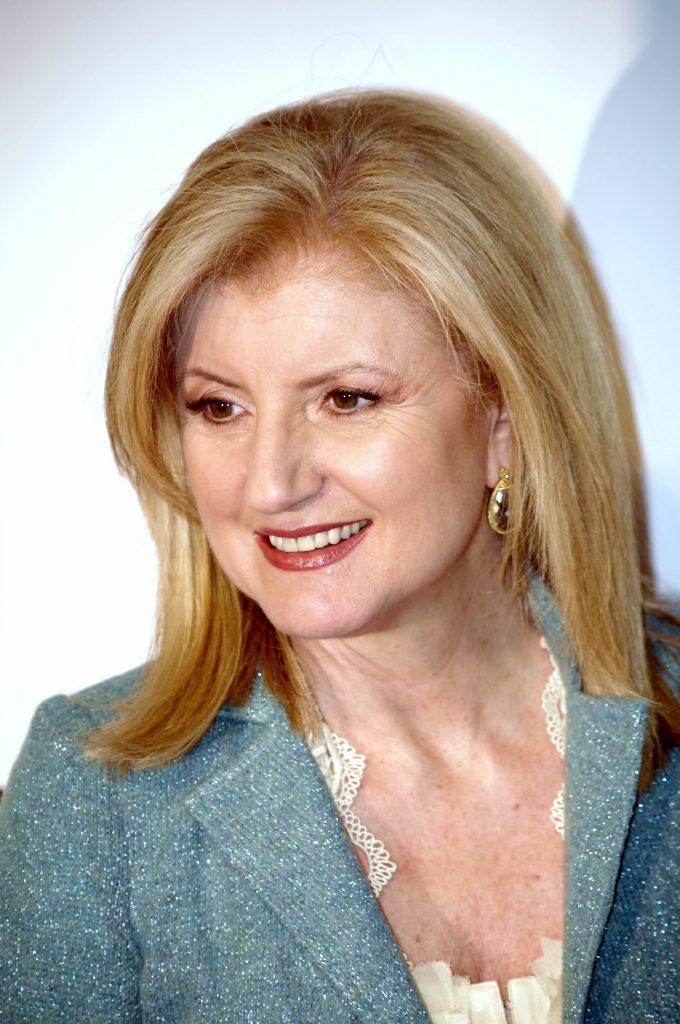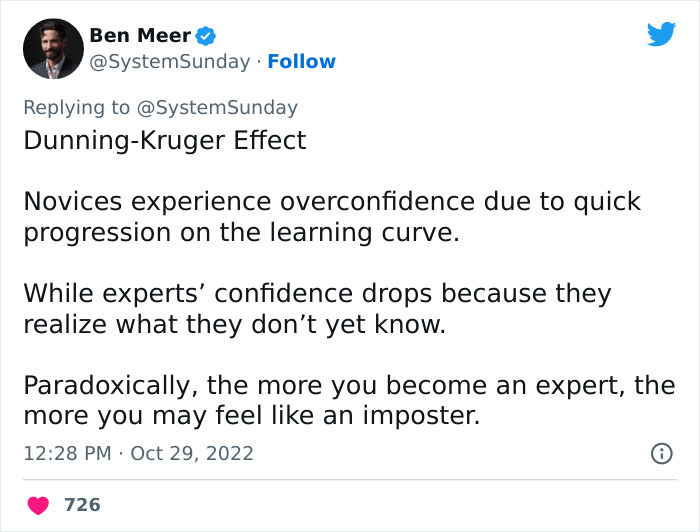Imposter syndrome is that gnawing feeling of self-doubt and incompetence coupled with the dread of being exposed as a fraud. Impostor syndrome (also known as impostor phenomenon, impostorism, or perceived fraudulence), involves feelings of self-doubt and personal incompetence that persist despite education, experience, and accomplishments.
Famous “Imposters”
Phoenix Performance Partners listed 18 famous people who suffer imposter syndrome. They discussed it openly, and I’ve quoted them here.

“The exaggerated esteem in which my lifework is held makes me very ill at ease. I feel compelled to think of myself as an involuntary swindler.”
Albert Einstein: Nobel Prize-winning Physicist

“I have written 11 books, but each time I think, ‘uh oh, they’re going to find out now. I’ve run a game on everybody, and they’re going to find me out.’”
Maya Angelou: Nobel Laureate, poet, author

“I still have a little impostor syndrome… It doesn’t go away, that feeling that you shouldn’t take me that seriously. What do I know? I share that with you because we all have doubts in our abilities, about our power and what that power is.”
Michelle Obama: lawyer, author, former First Lady

“Very few people, whether you’ve been in that job before or not, get into the seat and believe today that they are now qualified to be the CEO. They’re not going to tell you that, but it’s true.”
Howard Schultz: former CEO of Starbucks

“Every time I took a test, I was sure that it had gone badly. And every time I didn’t embarrass myself — or even excelled — I believed that I had fooled everyone yet again. One day soon, the jig would be up.”
Sheryl Sandberg: Harvard graduate, Facebook COO, author of Lean In

“There are an awful lot of people out there who think I’m an expert. How do these people believe all this about me? I’m so much aware of all the things I don’t know.”
Dr. Margaret Chan: former Director General of the World Health Organization

“Today, I feel much like I did when I came to Harvard Yard as a freshman in 1999. I felt like there had been some mistake, that I wasn’t smart enough to be in this company, and that every time I opened my mouth I would have to prove that I wasn’t just a dumb actress.”
Natalie Portman: Harvard graduate, Academy Award winning actress

“No matter what we’ve done, there comes a point where you think, ‘How did I get here? When are they going to discover that I am, in fact, a fraud and take everything away from me?’”
Tom Hanks: Academy Award winning actor and filmmaker

“I’d been obsessed with going to Cambridge even before I’d learned English, and my mother had somehow helped make it happen from our one-bedroom apartment in Athens. I felt like there I finally was, but the minute I opened my mouth, people would know I didn’t really belong. My mother taught me that fearlessness isn’t the absence of fear, but the mastery of it. I leaned into my fear by trying to get into the Cambridge Union (the debating society,) where I eventually became the first foreign president. What I learned was that what you have to say is more important than how you sound, which is to say that that feeling that we don’t belong is much more likely to come from us — from that obnoxious roommate inside our heads — than it is from someone else (who is likely dealing with their own forms of imposter syndrome).”
Arianna Huffington: author, columnist, founder of Huffington Post

“Yes, you’re an impostor. So am I and so is everyone else. Superman still lives on Krypton and the rest of us are just doing our best.”
Seth Godin: author, lecturer, teacher, business owner

“The beauty of the impostor syndrome is you vacillate between extreme egomania, and a complete feeling of: ‘I’m a fraud! Oh god, they’re on to me! I’m a fraud!’ So you just try to ride the egomania when it comes and enjoy it, and then slide through the idea of fraud.”
Tina Fey: comedian, author, and actor, winner of Emmy Awards, Golden Globe Awards, Screen Actor’s Guild Awards, and the youngest ever recipient of the Mark Twain Prize for American Humor

“I have spent my years since Princeton, while at law school and in my various professional jobs, not feeling completely a part of the worlds I inhabit. I am always looking over my shoulder wondering if I measure up.”
Sonia Sotomayor: Supreme Court justice

“I go through acute imposter syndrome with every role. I think winning an Oscar may in fact have made it worse. Now I’ve achieved this, what am I going to do next? What do I strive for? Then I remember that I didn’t get into acting for the accolades, I got into it for the joy of telling stories.”
Lupita Nyong’o: Academy Award winning actress

“It’s almost like the better I do, the more my feeling of inadequacy actually increases, because I’m just going, ‘Any moment, someone’s going to find out I’m a total fraud, and that I don’t deserve any of what I’ve achieved.”
Emma Watson: actress, UN Women Global Goodwill Ambassador, founder of the United Nations HeForShe campaign

“On the first season of Top Chef, I suffered from impostor syndrome.”
Padma Lakshmi: author, model, host of Top Chef, UN Goodwill Ambassador, founder of the Endometriosis Foundation of America

“I think even being an actress for over a decade now, I still have imposter syndrome. Where you’re asking yourself, ‘Oh, is this really what I’m supposed to be doing?’”
Maisie Williams: award winning actress and producer

“Who doesn’t suffer from imposter syndrome? Even when I sold my business for $66 Million, I felt like an absolute fraud!”
Barbara Corcoran: real estate mogul and long-time judge on Shark Tank

“There were two Venus Williamses in our family. It was crazy… my parents would make me order first, but once she ordered, I’d change my mind. It was tough for me to stop being Venus and become the person I am.”
Serena Williams: considered the grestest women’s tennis player of all time, winner of 23 Grand Slam singles titles
.
Conclusion: how one sees oneself may defy all sorts of external validation.
What is Imposter Syndrome?
According to a 2020 review featured in Medical News Today, 9%–82% of people experience impostor syndrome— a range so broad as to be almost meaningless! But whatever. The numbers vary depending on who participates in a study.
Imposter syndrome is prevalent within the tech industry, with about 58% of tech employees stating that they currently experience some form of the condition within their careers. It’s especially common in software engineers, developers, and designers.
Many people experience symptoms for a limited time, such as in the first few weeks of a new job. For others, the experience can be lifelong.
Imposter syndrome is likely the result of multiple factors, including personality traits (such as perfectionism) and family background. One theory is that imposter syndrome is rooted in families that value achievement above all else.
Women Beware!
In their Women’s Leadership Summit Report (2022), international financial auditing firm network KPMG announced some interesting findings
- 75% of executive women report having personally experienced imposter syndrome at certain points in their career
- 85% believe imposter syndrome is commonly experienced by women in corporate America
- 74% percent of executive women believe that their male counterparts do not experience feelings of self-doubt as much as female leaders do
- 81% believe they put more pressure on themselves not to fail than men do
What might explain these gender differences? In studies of how women and men explain their successes and failures, women tend to attribute their successes to luck or other external factors while blaming themselves for failures. Men are the opposite: they attribute their successes to talent and hard work and blame failures on luck or other external factors.
However, a report published in Harvard Business Review suggests that women experiencing self-doubt in the workplace may be facing systemic discrimination and exclusion rather than imposter syndrome. When accomplished, capable, intelligent women are consistently reminded, both subtly and overtly, that they do not belong in the upper echelons of power, it is inevitable that some of them will begin to internalize this message.
Recognizing Imposter Syndrome
Symptoms of impostor syndrome can look different for different people, though there are some consistent and tell-tale red flags. Symptoms might include
- Extreme lack of self confidence
- Feelings of inadequacy
- Constant comparison to other people
- Anxiety
- Self doubt
- Distrust in one’s own intuition and capabilities
- Negative self-talk
- Irrational fears of the future
In professional settings, efforts to counter these feelings might include taking on extra work to make sure you’re “doing it all”; shrugging off accolades; not responding to job postings unless you meet every single requirement; working harder and holding yourself to ever higher standards.
Though the impostor phenomenon isn’t an official diagnosis listed in the DSM, psychologists and others acknowledge that it is a very real and specific form of intellectual self-doubt. Besides anxiety, impostor feelings are often accompanied by depression. FYI, women are nearly twice as likely as men to be diagnosed with depression.
The Flip Side of Imposter Syndrome

On the opposite side of imposter syndrome sits overconfidence, otherwise known as the Dunning-Kruger Effect. It derives its name from a study published in 1999 by David Dunning and Justin Kruger in the Journal of Economic Psychology. While imposter syndrome develops when one underestimates their own values, skills, and accomplishments, those experiencing the Dunning-Kruger effect do the reverse. Some say this syndrome is much more harmful because people without competence are extremely confident.
Bottom line: Note your own tendencies toward imposter syndrome and stay in touch with reality.





